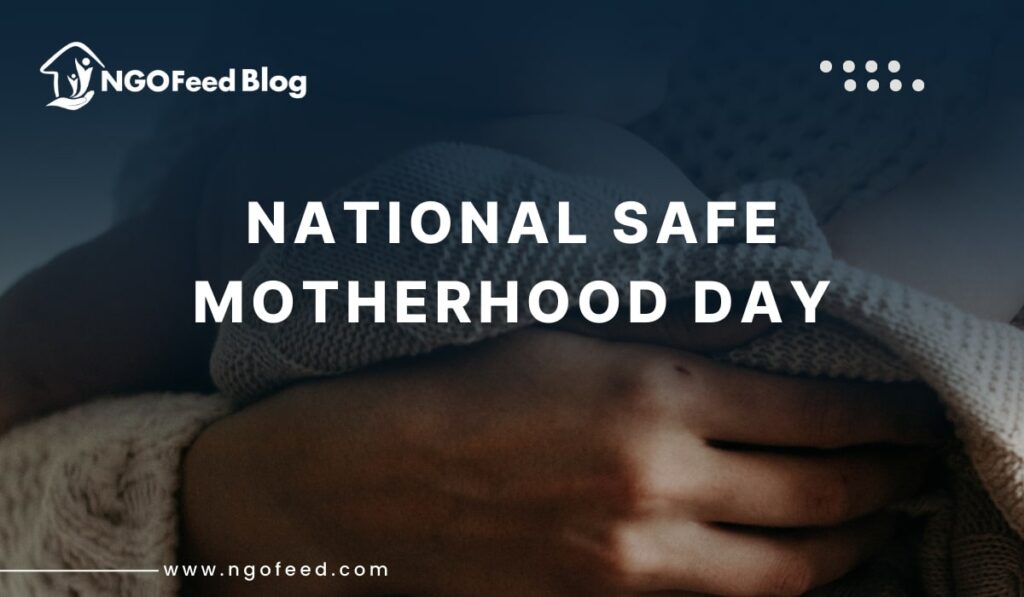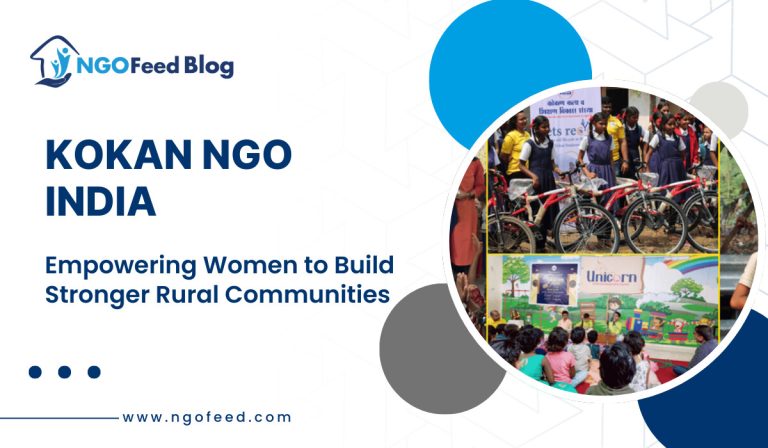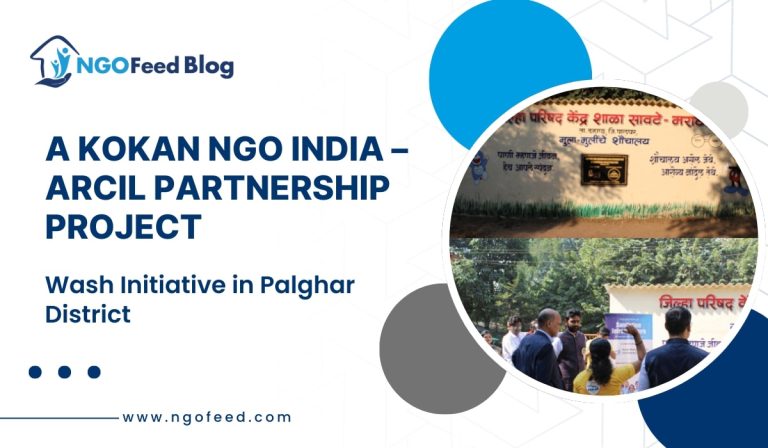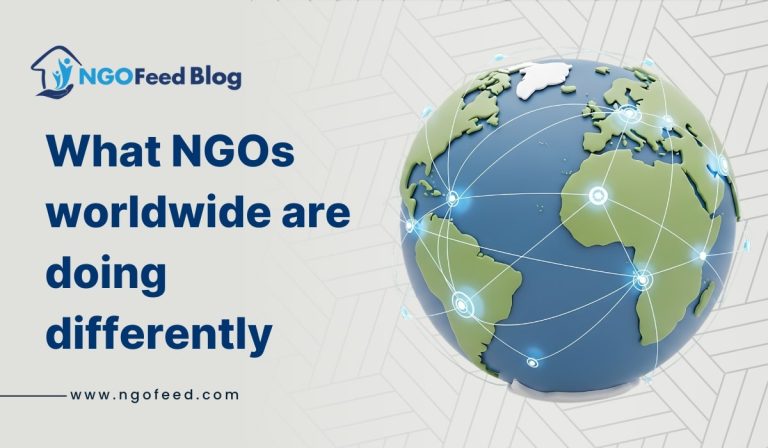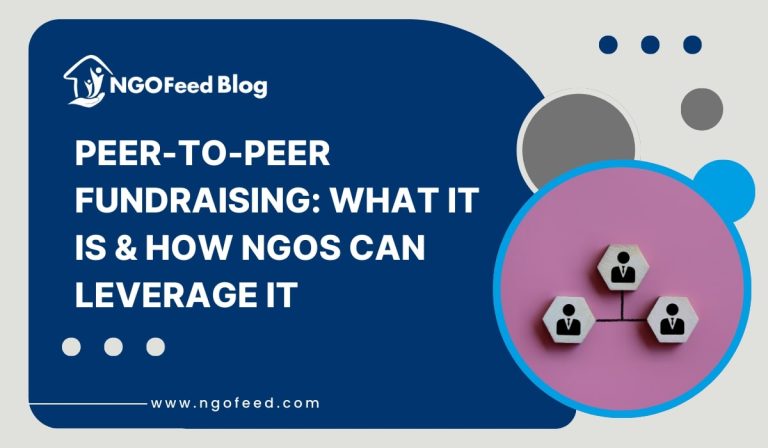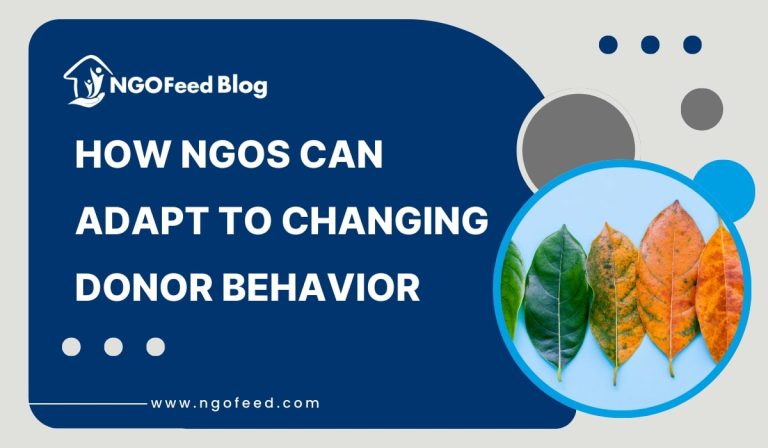National Safe Motherhood Day, celebrated every year on April 11th in India, is a vital initiative focused on enhancing awareness about the significance of adequate healthcare for pregnant and lactating women. This day, marking the birth anniversary of Kasturba Gandhi acts as a strong reminder of the necessity to provide safe and respectful maternity care for every woman.
The figures regarding maternal mortality in India, while showing improvement, still present a serious issue. Numerous women, especially in rural and disadvantaged areas, are deprived of crucial prenatal, postnatal, and delivery services. Complications that arise during pregnancy and childbirth, which are often preventable, continue to take numerous lives.
Table of Contents
Also Read: Role of NGOs in HIV and AIDS Awareness and Prevention
Key Objectives of National Safe Motherhood Day
- Raising Awareness: To inform the public about the significance of maternal health and the rights of expectant women.
- Promoting Access to Healthcare: To campaign for enhanced access to quality healthcare services, including prenatal checkups, skilled birth attendance, and postnatal care.
- Combating Malnutrition: To tackle the problem of maternal malnutrition, which greatly affects pregnancy results.
- Preventing Maternal Mortality: To lower maternal mortality rates by advocating safe delivery practices and timely intervention for complications.
- Empowering Women: To enable women to make knowledgeable choices about their reproductive health and access available resources.
National Safe Motherhood Day – Challenges and Solutions
Multiple challenges impede the realization of National Safe Motherhood Day in India. These encompass:
- Limited Access to Healthcare Facilities: Particularly in rural and isolated locations.
- Lack of Skilled Birth Attendants: Resulting in complications during childbirth.
- Poverty and Malnutrition: Leading to unfavourable maternal health.
- Social and Cultural Barriers: Limiting women’s access to healthcare.
- Lack of awareness: regarding existing resources and healthy practices.
Also Read: Role of NGOs in Healthcare
To address these challenges, a comprehensive approach is essential:
- Strengthening Healthcare Infrastructure: Enhancing access to quality healthcare facilities, especially in neglected regions.
- Training Skilled Birth Attendants: Guaranteeing that all births are supervised by qualified professionals.
- Improving Nutrition: Tackling maternal malnutrition through nutritional programs and education.
- Promoting Awareness and Education: Informing women and communities about the significance of maternal health and safe delivery practices.
- Empowering Women: Increasing women’s decision-making authority and access to essential resources.
- Leveraging Technology: Implementing telehealth and mobile health initiatives to connect with remote communities.
- Community Participation: Involving local communities in supporting maternal health.
National Safe Motherhood Day – Importance
National Safe Motherhood Day is more than a symbolic occasion. It’s a plea for unified action. Governments, healthcare providers, NGOs, and communities need to collaborate to establish a nurturing environment for pregnant and lactating women. By investing in maternal health, we are making a commitment to the future of our nation.
By endorsing safe motherhood, we can guarantee that every woman has the chance to undergo a healthy and safe pregnancy and childbirth. This day serves as a prompt to prioritize the welfare of mothers, the cornerstone of a healthy society.
Also Read: Role of NGOs in Mental Health
The Reality of Maternal Health in India
Although there has been advancement, the situation for numerous Indian women, especially those in rural and disadvantaged communities, is grim. The ongoing challenges involve:
- Anaemia: A prevalent issue, greatly heightening the risk of complications during delivery.
- Early Marriage and Teenage Pregnancies: Leading to increased rates of maternal mortality and morbidity due to immature physical development.
- Lack of Access to Emergency Obstetric Care: In isolated regions, prompt access to critical services like caesarean births and blood transfusions is frequently lacking.
- Postpartum Complications: Issues such as infections, haemorrhages, and mental health challenges are often neglected, resulting in enduring health concerns.
- The Burden of Domestic Work: Intense physical exertion during pregnancy can adversely affect maternal health.
- Social Stigma and Discrimination: Women from disadvantaged communities, including those from scheduled castes and tribes, encounter extra obstacles to obtaining healthcare due to social stigma and discrimination.
Government Initiatives and Ongoing Efforts
The Indian government has launched various initiatives to tackle maternal health issues (National Safe Motherhood Day), which include:
- Janani Suraksha Yojana (JSY): A conditional cash transfer initiative aimed at promoting institutional childbirths.
- Pradhan Mantri Surakshit Matritva Abhiyan (PMSMA): Offering free, thorough antenatal care for expectant mothers.
- Poshan Abhiyaan: A nationwide nutrition mission focused on enhancing maternal and child nutrition.
- LaQshya (Labour Room Quality Improvement Initiative): Concentrated on enhancing the standard of care in labor rooms and maternity operation theatres.
- National Health Mission (NHM): A broad initiative intended to fortify the healthcare framework, particularly in rural locales.
- Mother and Child Tracking System (MCTS): Designed to oversee and monitor the health of pregnant women and children.
Also Read: Role of WHO in Healthcare
The Road Ahead: Towards Sustainable Safe Motherhood:
To realize sustainable National Safe Motherhood Day, a comprehensive and integrated strategy is vital. Principal areas of emphasis include:
- Strengthening Primary Healthcare: Channelling resources into primary healthcare facilities to deliver complete antenatal, postnatal, and delivery services at the community level.
- Improving Quality of Care: Guaranteeing that healthcare practitioners are educated in respectful maternity care and comply with evidence-based methodologies.
- Addressing Social Determinants of Health: Confronting poverty, gender disparity, and social discrimination to enhance women’s overall health and welfare.
- Promoting Community Engagement: Enabling communities to engage in maternal health initiatives and advocate for their rights.
- Investing in Research and Innovation: Creating innovative technologies and interventions to enhance maternal health results.
- Focus on Mental Health: Incorporating mental health services into maternal healthcare initiatives to tackle postpartum depression and other mental health concerns.
- Data Driven approach: Leveraging data to pinpoint areas of necessity, monitor advancements, and assess the success of interventions.
- Focus on Adolescent health: Establishing programs that concentrate on the health of adolescent girls to avert early pregnancies.
National Safe Motherhood Day 2025 serves as a strong reminder of the work that is still necessary. By emphasizing maternal health, we can build a society in which every woman has the chance to undergo a secure and healthy pregnancy and childbirth, thus contributing to a healthier and more prosperous nation.
Intersectional Factors Impacting Maternal Health
Maternal health is not a standalone concern; it is closely linked with a range of social, economic, and cultural elements. Understanding these intersections is crucial for successful interventions:
- Caste and Ethnicity: Women from disenfranchised groups, including Dalits and Adivasis (tribal), encounter systemic biases that hinder their access to quality healthcare. They frequently endure higher levels of poverty, malnutrition, and limited educational opportunities, intensifying their susceptibility.
- Geographical Location: Women residing in rural and isolated regions confront considerable obstacles due to inadequate infrastructure, absence of transportation, and a lack of healthcare professionals. This leads to delays or a complete lack of access to necessary services.
- Education and Literacy: Insufficient education and literacy rates among women lead to poor health awareness and restrict their decision-making power concerning reproductive health.
- Economic Status: Financial hardship limits access to healthy food, clean water, and medical services. Women from economically disadvantaged backgrounds are more prone to complications during pregnancy and childbirth.
- Gender Inequality: Discrimination and violence based on gender restrict women’s autonomy and control over their bodies, affecting their ability to obtain and use healthcare services.
- Climate Change: The rising occurrence of extreme weather events, like floods and droughts, can hinder access to healthcare and worsen existing vulnerabilities.
The Role of Stakeholders
Ensuring safe motherhood demands a joint effort from multiple stakeholders:
Also Read: Role of NGOs in Disabled Person
Government:
- Enhancing healthcare infrastructure and services.
- Establishing and enforcing policies that safeguard women’s reproductive rights.
- Distributing sufficient resources for maternal health initiatives.
- Tracking and assessing the efficacy of interventions.
Healthcare Providers:
- Delivering quality, respectful, and culturally attuned care.
- Guaranteeing timely and suitable responses for complications.
- Educating women on maternal health and safe delivery methods.
- Adhering to ethical standards.
Non-Governmental Organizations (NGOs) in India:
- Championing women’s rights and access to healthcare.
- Offering community-cantered services and assistance.
- Increasing awareness about maternal health concerns.
- Encouraging community engagement.
Community Leaders and Influencers:
- Fostering positive social norms and views regarding maternal health.
- Tackling cultural hindrances and misunderstandings.
- Promoting men’s participation in maternal health.
Families and Communities:
- Providing emotional and practical assistance to expectant and nursing women.
- Ensuring availability of nutritious food and clean water.
- Challenging gender-based discrimination and violence.
Media:
- Enhancing public understanding of maternal health issues.
- Advocating positive narratives about safe motherhood.
- Holding authorities and healthcare providers accountable.
Researchers and Academics:
- Conducting studies to pinpoint effective interventions.
- Creating innovative technologies and strategies to enhance maternal health.
- Supplying data to guide policy decisions.
Focus on preventative care:
The focus on preventative care is vital. Regular health evaluations, proper nutrition, and education on possible complications can significantly minimize risks.
By recognizing the intricate interplay of factors and encouraging collaboration among stakeholders, India can achieve considerable advancements toward ensuring safe motherhood for all women.
Conclusion
In conclusion, National Safe Motherhood Day 2025 acts as an essential yearly reminder of the persistent fight to guarantee the health and well-being of pregnant and lactating women in India. Although advancements have been achieved, the ongoing challenges of inadequate access to quality healthcare, social inequalities, and cultural barriers necessitate ongoing and heightened efforts. Securing safe motherhood is not just a healthcare concern; it is a basic human right and an important investment in our nation’s future.
Also Read: NGOs in Cancer Care
The way ahead demands a comprehensive, multi-dimensional strategy, involving enhanced healthcare infrastructure, better quality of care, focused interventions that tackle social determinants of health, and strong community involvement. By recognizing the intersecting factors that affect maternal health, encouraging cooperation among various stakeholders, and emphasizing preventative care, India can make notable progress towards ensuring that every woman has a safe and healthy pregnancy and childbirth. Only with sustained dedication and joint efforts can we truly achieve the vision of safe motherhood for all.

